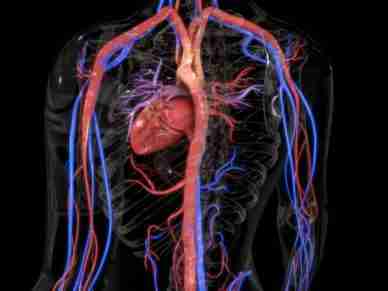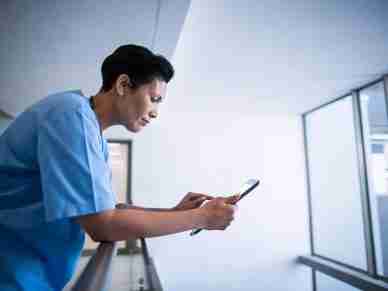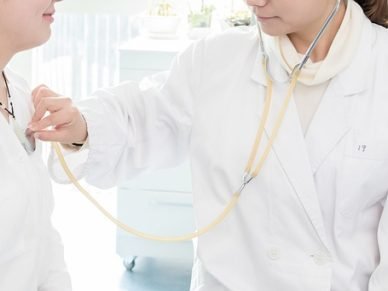Enhancing Peace of Mind
As our population ages, ensuring security and safety for seniors becomes increasingly important. Life Assure medical alert devices, among other high quality providers, provide a reliable solution, offering 24-hour emergency response with just the press of a button. This technology not only reduces response times in emergencies but also offers peace of mind for both seniors and their families.

These devices cater to various needs, from mobile systems that allow active seniors to venture out confidently, to in-home systems ideal for those who prefer the safety of their homes. Popular options such as Medical Guardian and LifeFone come with features like long battery life, customer service excellence, and no startup fees, making it easier to choose a device that fits your specific needs.
Incorporating a medical alert system into your daily routine guarantees a higher level of security and independence. Whether you are worried about falls, medical emergencies, or just want an extra layer of safety, these devices provide an easy and effective solution.
Understanding Medical Alert Devices

Medical alert devices provide critical security and safety for seniors through easily accessible help buttons, reliable monitoring services, and advanced features. These devices come in various types catering to different needs, all with the primary goal of ensuring prompt assistance during emergencies.
Types of Medical Alert Systems
In-home Systems
In-home systems are designed to work within and around the house. They typically rely on a landline or cellular connection. Key brands like Medical Guardian offer base stations with a help button and a two-way speaker for communication. The range is usually sufficient to cover an entire home and yard.
Mobile Systems
Mobile systems, unlike their in-home counterparts, operate on a cellular connection and use GPS technology. This makes them suitable for seniors who are frequently on the go. Products such as the Lively Mobile offer a compact, wearable device with a help button, ensuring you can get help no matter where you are.
Key Features to Look For
Fall Detection
Fall detection is a crucial feature that automatically alerts emergency services if a fall is detected. This is especially important for seniors living alone, as timely assistance can make a significant difference.
Battery Life
Battery life varies among devices. Some in-home systems plug into an outlet and have backup batteries lasting up to 30 hours, while mobile systems need periodic recharging. Make sure to consider the battery life that aligns with your lifestyle.
Range
For in-home systems, check the range of the base station. A good range ensures that even if you’re in the yard, the signal remains strong. Typically, good systems offer a range of up to 1,300 feet.
Wearable Device Options
Wearable devices should be comfortable and discreet, whether they are pendants, bracelets, or clip-ons. Select a device that you or your loved one will feel comfortable wearing consistently.
Reliable Connection
Ensure the system uses a solid connection method, whether it’s a landline or cellular service. Cellular connections are ideal for mobile systems, ensuring a range that a landline can’t match.
By focusing on these key elements, you can select a medical alert system that best meets your safety and security needs.
The Importance of Emergency Response
Having timely and effective emergency response is paramount for seniors, especially those living alone or with medical conditions. Key components include professional monitoring services and enhancements in fall detection technology.
Professional Monitoring Services
Professional monitoring services offer 24/7 support, ensuring immediate emergency help when needed. Trained specialists at a monitoring center promptly assess the situation and contact emergency services. This reduces response time, critical during life-threatening events like strokes or heart attacks.
Most devices connect to a landline or cellular service, facilitating seamless communication. A single button press alerts the call center, which then coordinates with local emergency services, providing reassurance and safety. Furthermore, such systems often include features like two-way communication and status checks, enhancing the overall security.
Enhancements in Fall Detection Technology
Fall detection technology has revolutionized senior safety. Modern medical alert systems come equipped with automatic fall detection, which identifies falls without needing manual input. This is crucial in cases where the individual is unconscious or unable to press the emergency button.
These advancements rely on sensors and algorithms to differentiate between normal movements and falls. When a fall is detected, the system automatically notifies the monitoring center. This technology significantly reduces response time, ensuring prompt medical attention.
Such systems offer peace of mind for seniors and their families, knowing that help will be dispatched quickly, even if the wearer cannot physically request it. This feature is particularly beneficial for seniors with mobility issues or chronic medical conditions.
Cost Considerations and Insurance
Medical alert devices offer essential security and safety for seniors. Considering the costs and potential insurance coverage can help make these devices more affordable and accessible.
Understanding Pricing Models
Medical alert systems feature various pricing models. Monthly fees typically range from $20 to $60 per month. Basic in-home systems fall closer to the lower end of this range. More advanced options, like on-the-go systems with GPS and fall detection, can cost more.
Some providers offer annual subscriptions that may include discounts, making long-term plans appealing for affordability. Common additional fees include activation fees and potential charges for extra features or accessories. It’s crucial to identify these costs upfront to understand your financial commitment.
Insurance and Medicare Coverage
Determining whether insurance or Medicare covers medical alert systems can significantly impact affordability. Original Medicare generally does not cover these devices, but some Medicare Advantage plans might provide allowances or reimbursements.
Contact your provider to clarify coverage terms. Private insurance plans may also offer partial coverage or reimbursements for these systems. Verify if your policy includes these benefits. Seeking advice from insurance agents could help you understand and maximize potential coverage options.
Assessing these factors ensures you choose a system that fits your budget while providing reliable safety and support.
Choosing a Medical Alert System for Your Lifestyle
Selecting the right medical alert system depends significantly on whether you lead an active lifestyle or spend most of your time at home, ensuring both your safety and independence.
For Active Seniors On-the-Go
Active seniors need mobile medical alert systems that move with them. Key features to prioritize include GPS tracking and a mobile app. GPS tracking is essential for locating you in case of an emergency, whether you’re walking in the park or running errands. Consider systems with automatic fall detection, which can trigger an alert if you fall and can’t press the button yourself.
Some systems to consider include Medical Guardian and MobileHelp, both noted for their reduced response times (48 and 44 seconds respectively). Ensure the device is lightweight and comfortable to wear, like a pendant or wristband, and check the battery life to avoid frequent recharging.
For Seniors at Home
If you’re primarily at home, an in-home medical alert system can offer peace of mind. Systems like Life Alert provide extended coverage with landline or cellular connections. Look for systems with a base unit and wall buttons strategically placed in high-risk areas like bathrooms and staircases.
Bay Alarm Medical and Life Alert are notable options, the former praised for customer service. Also, ensure the system has a 72-hour backup battery, especially for those in areas prone to power outages. This setup can help maintain your safety and comfort, while offering reassurance to family and loved ones.
Conclusion
Medical alert devices play a critical role in enhancing the safety and security of seniors. These systems provide immediate access to help during emergencies, promoting independence and peace of mind.
For those with mobility issues or chronic conditions, these devices can be lifesaving. Quick response times and professional monitoring ensure timely medical assistance.
Affordability and ease of use are also key factors. Many systems offer straightforward setup and simple operation, making them accessible to a wide audience.
Benefits:
- Increased independence
- Enhanced safety
- Peace of mind for both users and their families
Key Features to Consider:
- 24-hour monitoring
- Fast response times
- Ease of use
- Cost
Choosing the right medical alert system can greatly improve your quality of life. Prioritize features that match your specific needs and budget.
By investing in a reliable medical alert device, you can ensure your well-being and continue to live independently with confidence.
















Leave a Reply